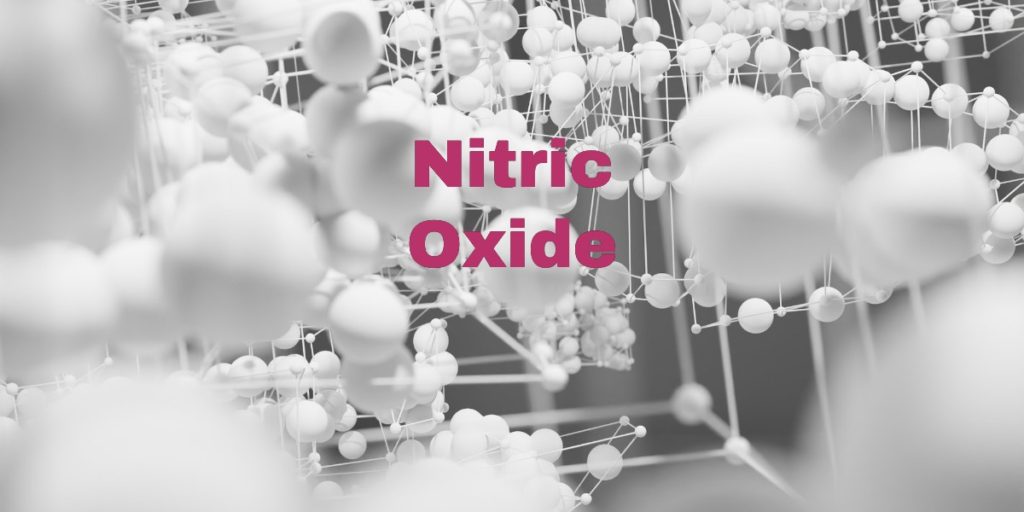Nitric Oxide: The Underrated Molecule, Benefits, and Natural Boosters
I started looking hard at Nitric oxide (NO) for health reasons after hearing about it as a recurring theme on several different podcasts (usual suspects, Ben Greenfield, Dave Asprey, Andrew Huberman). I already do red light therapy and have adapted some exercise routines (scroll to the end to see one) to emphasize nitric oxide production. It’s a fascinating molecule with a vital role in human health, in this post, I will show you my notes from my deep dive.
What is Nitric Oxide?
Nitric oxide is a molecule composed of one nitrogen atom and one oxygen atom. It’s a gas, it’s colorless, and it’s a chemical messenger in the human body. Nitric oxide is created when our body breaks down the amino acid arginine, with the help of the nitric oxide synthase (NOS) enzymes.
There are three primary types of NOS enzymes: neuronal NOS (nNOS), inducible NOS (iNOS), and endothelial NOS (eNOS). Each type of NOS has a unique function and location in the body. But one thing they all have in common: they help produce nitric oxide when we need it.
Functions of Nitric Oxide in the Human Body
Vasodilation and Blood Circulation
One of the critical functions of nitric oxide is to relax the smooth muscles in our blood vessels. This relaxation process, known as vasodilation, increases blood flow and circulation. More blood flow means more oxygen and nutrients delivered to our tissues, which is essential for overall health.
Cardiovascular Health
Nitric oxide doesn’t stop there. It also plays a crucial role in cardiovascular health. By preventing blood clots, reducing inflammation in blood vessels, and helping to maintain healthy blood pressure, nitric oxide keeps our cardiovascular system running smoothly.
The cardioprotective roles of NO include regulation of blood pressure and vascular tone, inhibition of platelet aggregation and leukocyte adhesion, and prevention smooth muscle cell proliferation.
PubMed ,The role of nitric oxide in cardiovascular diseases
Immune System Support
If you thought nitric oxide was just about blood flow, think again. It also has a hand in our immune system. NO exhibits antimicrobial properties, helping to kill off invading pathogens. It also regulates the function of various immune cells, ensuring they’re doing their job correctly.
Nervous System Functions
Lastly, nitric oxide plays a part in our nervous system functions, such as memory, learning, sleep, and mood regulation.
Nitric Oxide and Erectile Dysfunction
Nitric oxide plays a crucial role in supporting erectile function, and a deficiency can lead to erectile dysfunction (ED). It helps relax the blood vessels in the penis, allowing for increased blood flow and, ultimately, an erection. When nitric oxide levels are low, erectile dysfunction can occur. So, if you want to maintain your sexual health, you might want to pay attention to your NO levels.

Nitric Oxide Supplements and Boosters
Considering the importance of nitric oxide, it’s no surprise that supplements and boosters have flooded the market. Here are the most common types:
- L-arginine – A direct precursor to nitric oxide, L-arginine supplements are designed to boost NO levels in the body. However, research has shown that L-arginine supplementation might not be as effective as we’d hope, especially for those with existing cardiovascular issues.
- L-citrulline – Another amino acid, L-citrulline, is converted to L-arginine in the body, which then leads to nitric oxide production. Some studies suggest that L-citrulline supplementation may be more effective than L-arginine at increasing NO levels.
- Nitrate-based supplements – These supplements provide nitrates, which are converted to nitric oxide in the body. Common sources of nitrates include beetroot powder and inorganic nitrate salts. Research has shown that nitrate-based supplements can indeed increase nitric oxide levels.
As with any supplement, proceed with caution. Always consult with a healthcare professional before taking nitric oxide boosters, and be mindful of potential side effects. I use a red phenol powder when I do my yearly gut reset protocol.
Who can benefit from nitric oxide supplements? Well, athletes might notice an improvement in endurance and performance, while those with erectile dysfunction could potentially see some improvement in their condition. But remember, supplements aren’t magic bullets – they should be used in conjunction with a healthy lifestyle.
Natural Ways to Boost Nitric Oxide Levels
Now, if you’re like me, you’d prefer to find natural ways to enhance your nitric oxide levels. Here are some tips to help you on your NO-boosting journey:
Dietary Sources of Nitric Oxide Precursors
- Leafy greens – Spinach, arugula, and kale are packed with nitrates, which can be converted to nitric oxide in the body. Bonus points for being healthy and delicious.
- Beets – Beetroots are another excellent source of dietary nitrates. If you’re not a fan of their earthy taste, try adding them to a smoothie or juice.
- Nuts and seeds – Walnuts, almonds, and pumpkin seeds are rich in L-arginine, which, as we know, plays a role in nitric oxide production.
| Food | Precursor | Description |
|---|---|---|
| Beets | Nitrates | Beets are packed with nitrates, which the body converts into nitric oxide. |
| Spinach | Nitrates | This leafy green is high in nitrates, contributing to nitric oxide production. |
| Arugula | Nitrates | Arugula has one of the highest nitrate contents among leafy greens. |
| Celery | Nitrates | Celery is another vegetable rich in nitrates. |
| Lettuce | Nitrates | Lettuce, especially the red and butterhead varieties, contains a good amount of nitrates. |
| Walnuts | L-arginine | Walnuts are a good source of L-arginine, a direct precursor to nitric oxide. |
| Pumpkin Seeds | L-arginine | Pumpkin seeds are another excellent source of L-arginine. |
| Almonds | L-arginine | Almonds contain a fair amount of L-arginine, contributing to nitric oxide production. |
| Garlic | Nitrates and L-arginine | Garlic is unique in that it contains both nitrates and L-arginine. |
| Dark Chocolate | L-arginine | Dark chocolate is not only delicious, but it also provides a boost of L-arginine. |
Exercise and Nitric Oxide Production
Physical activity is a fantastic way to boost nitric oxide levels. Research has shown that both aerobic and anaerobic exercise can increase NO production. So whether you’re a fan of running, swimming, lifting weights, or practicing yoga, your nitric oxide levels will thank you. I try and use Dr. Zach Bush’s 4 minute workout to drive nitric oxide a couple of times a day. His video below goes right to the workout. You can rewind if you want to hear his explanation.
Nitric Oxide-Enhancing Lifestyle Habits
- Stress reduction – Chronic stress can lower nitric oxide levels, so finding ways to manage stress is essential. Try meditation, deep breathing, or a relaxing hobby to help keep your stress in check.
- Adequate sleep – We often underestimate the power of a good night’s sleep. Aim for 7-9 hours of quality sleep each night to maintain optimal nitric oxide production.
Conclusion
The more I dig into nitric oxide the more I realize how important it is for health. From blood circulation to immune support and even our love lives, NO plays a vital role. So next time you’re eating leafy greens or hitting the gym, know your facilitating nitric oxide, the underrated molecule that keeps us going.
Nitric oxide is complex, and we’ve only scratched the surface in this post. But my hope is that you walk away with a better understanding of this molecule and its importance to our well-being. We will have several additional posts on specific aspects such as
What is Nitric Oxide and why is it important?
Nitric oxide is a molecule composed of one nitrogen atom and one oxygen atom. It functions as a chemical messenger in the human body, playing vital roles in vasodilation, blood circulation, cardiovascular health, immune system support, and nervous system functions.
How does Nitric Oxide affect erectile function?
Nitric oxide is essential for a healthy erection. It relaxes the blood vessels in the penis, allowing for increased blood flow and, ultimately, an erection. When nitric oxide levels are low, erectile dysfunction can occur.
What are some natural ways to boost Nitric Oxide levels?
Consuming foods rich in nitric oxide precursors, such as leafy greens, beets, and nuts, can help boost nitric oxide levels. Regular physical activity and maintaining a healthy lifestyle with adequate sleep and stress management are also beneficial.
What supplements can I take to increase Nitric Oxide levels?
L-arginine, L-citrulline, and nitrate-based supplements like beetroot powder are commonly used to increase nitric oxide levels. However, always consult with a healthcare professional before starting any supplement regimen.
Can Nitric Oxide help improve athletic performance?
Yes, nitric oxide can potentially improve athletic performance. By promoting vasodilation, nitric oxide enhances blood flow, delivering more oxygen and nutrients to muscles during exercise, which can improve endurance and performance.
Troy Wallace
Troy Wallace is Certified Basketball Speed Specialist and shares his experiences in trying to stay as healthy as possible to stay on the court. He is active in coaching youth basketball in YMCA, Team Work Sports Nebraska, and, currently, in the Jr. Warriors program in Omaha, NE. Visit Troy's Full Author Bio Page or email him directly.
Meaningful conversations happening daily about training, recovery, and injury-specific rehabilitation as well as sport-specific discussions on playing, coaching and refereeing your favorite sport. We welcome experts and those with curious minds seeking answers.
Join The Stay On The Court Community!